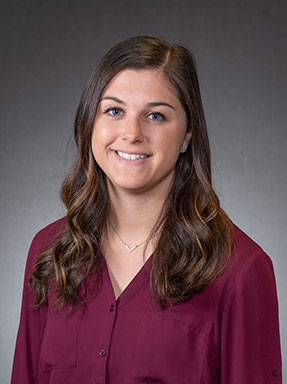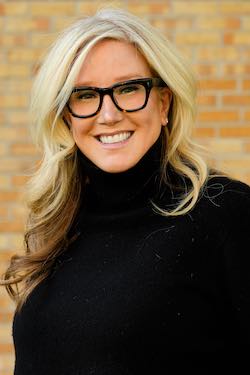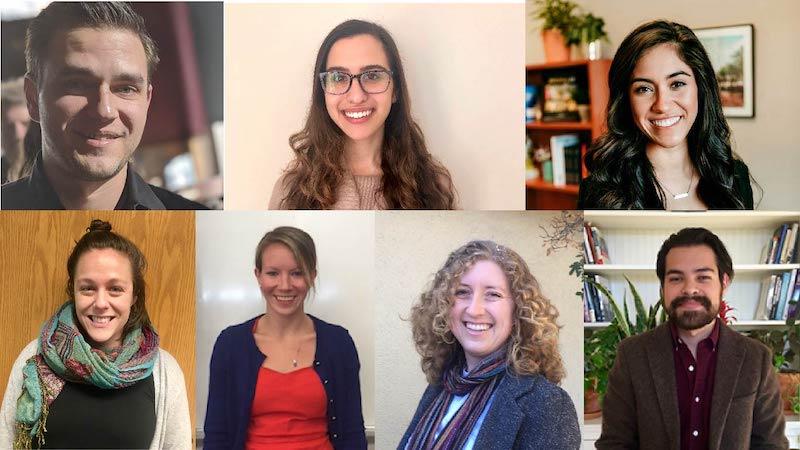New Program Offers Doctoral Students Expertise in Substance Use Disorders
A 3-year grant funds specialized training for psychologists

Colorado has the second highest prescription drug abuse rate in the country, yet reports show only a small percentage of people coping with the problem are able to access treatment.
The University of Denver’s Graduate School of Professional Psychology aims to address that access problem with its new COST program, which takes the school’s innovative specialty track in substance use disorder psychology a step further. COST, which stands for the Colorado Opiate Use Disorder/Substance Use Disorder Training program, addresses substance use in pregnant and parenting mothers, as well as in Spanish-speaking Coloradans.
“Seeing the field evolve over more than 20 years, I also knew that substance use treatment had been completely sidelined in doctoral training in psychology and that psychology, as a field faced with a growing public health problem, had an obligation to be better prepared to serve our communities,” says professor Kim Gorgens, who spearheads the new program.
Thanks to a 3-year $1.35 million grant from HRSA (Health Resources and Services Administration) — the largest GSPP has ever been awarded — the COST program enrolled its first cohort of PsyD students and Morgridge College of Education PhD students in fall 2019.
“We want to educate our students in the most robust way,” COST program coordinator Hollis Lyman says. “Those are such underserved areas. We really want to focus on those populations with our expertise. We want to make sure our supervision is great, our mentorship is great and our academic background in it is great.”
Students complete a three-course specialty track for substance use disorder and 1 speciality course in either Latinx psychology or infant & early childhood mental health. Then students participate in a one-year field placement at one of COST’s partner agencies. These include Denver Health Medical Outpatient Behavioral Health Services, Salud Family Health Center clinics, Parentline Colorado at GSPP’s Caring for You and Baby (CUB) clinic sites and Anschutz's Addiction & Treatment Services.
This new specialty adds to the groundbreaking academics that make GSPP one of the most comprehensive programs in the field. COST brings together an all-star lineup of professors: clinical professor Laura Meyer; clinical assistant professor Jennifer Tippet, who directs GSPP’s substance use disorder specialty; clinical assistant professor Tracy Vozar, director of the specialty in infant and early childhood mental health and head of the CUB clinic; and clinical assistant professor Henrietta Pazos, director of the Latinx psychology specialty.
“I knew we could capitalize on one of the things that makes GSPP so special: We have extraordinary faculty expertise in substance and opiate use treatment with a special emphasis on pregnant and parenting moms and underserved members of our Latinx community,” Gorgens says. “We also have incredibly talented staff that could build and support the infrastructure necessary for a large federal training grant.”
In addition to specialty supervision and mentorship, the COST program provides participants a $25,000 stipend, health care coverage and travel funds for one professional conference.
“We are committed to finding every single dollar of student support. We never miss a chance to offset the costs of graduate education,” Gorgens explains.
Brian Iliescu and Lauren Gross are two of the eight students selected for the first cohort. While Gross initially viewed substance use as separate from her work with pregnant women and expectant families, the COST program helped her discover how substance use can impact all parts of life.
“I’ve learned so much from [the substance use] sequence,” Gross says. “I’ve been able to take the information I’ve learned and apply it, so that’s been really useful.”
Iliescu, meanwhile, sought out GSPP for its focus on trauma, and the COST program helped him further his work and step into a mentorship role for the upcoming school year.
“We need programs like this to teach people in our field [that] this is an issue that needs to be included in the way that we think of people and in our treatment,” he says. “We can’t just send people to AA meetings and expect that to be good enough. We need to understand where the addiction comes from.”
Gross agrees, crediting the training with enriching her understanding of a complex problem.
“[It] did make me realize, this is actually everywhere, and it’s really important for any type of work you do to have a background in substance use,” Gross shares. “Now that I’m here, I’m really glad I have this training.”
For anyone interested in pursuing the COST training, the application process for the third cohort, which will start in fall 2021, begins this fall. Information can be found here. Community partners interested in getting involved can reach out to the coordinator, Hollis Lyman at hollis.lyman@du.edu.





